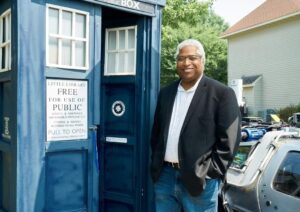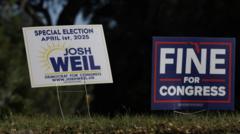**The recent legal challenge over residency requirements has not only impacted one candidate but also the broader balance of power in the Minnesota House of Representatives, illustrating the complexities of electoral law.**
### Minnesota Court Ruling Shakes Up House Majority Dynamics

### Minnesota Court Ruling Shakes Up House Majority Dynamics
**A district court ruling declares DFL candidate ineligible, momentarily shifting power in Minnesota's legislature.**
In a significant development, a Minnesota district court has declared that Democratic-Farmer-Labor (DFL) candidate Curtis Johnson is ineligible to occupy a seat in the Minnesota House of Representatives, following residency violations. This decision led to Republicans temporarily achieving a one-seat majority as the state prepares for the upcoming 2025 legislative session.
On December 20, 2024, Ramsey County District Judge Leonardo Castro ruled that Johnson did not satisfy the state's constitutional requirement of having lived in District 40B for a minimum of six months before the election. Consequently, the court prohibited Johnson from assuming office and mandated that the seat be filled through a special election.
As a result of the ruling and Johnson's subsequent resignation, the Minnesota House experienced a shift from a previously balanced tie of 67-67 to a slim Republican majority of 67-66. This unexpected turn disrupted ongoing power-sharing discussions and temporarily strengthened the GOP's influence within the chamber.
In response to this scenario, Governor Tim Walz initially scheduled a special election for January 28, 2025. However, the Minnesota Supreme Court intervened, declaring that the writ for the election was issued prematurely, which led to its cancellation. A new date was set, and the special election occurred on March 11, 2025. DFL candidate David Gottfried emerged victorious over Republican Paul Wikstrom, claiming 70.2% of the vote and effectively restoring the partisan balance in the House to 67-67.
This unfolding series of events emphasizes the necessity for compliance with constitutional criteria for candidacy and illustrates how legal disputes can significantly affect legislative power dynamics. The fleeting majority shift in the Minnesota House showcases the fluid nature of political control and underscores the essential role of judicial oversight in maintaining electoral integrity.
On December 20, 2024, Ramsey County District Judge Leonardo Castro ruled that Johnson did not satisfy the state's constitutional requirement of having lived in District 40B for a minimum of six months before the election. Consequently, the court prohibited Johnson from assuming office and mandated that the seat be filled through a special election.
As a result of the ruling and Johnson's subsequent resignation, the Minnesota House experienced a shift from a previously balanced tie of 67-67 to a slim Republican majority of 67-66. This unexpected turn disrupted ongoing power-sharing discussions and temporarily strengthened the GOP's influence within the chamber.
In response to this scenario, Governor Tim Walz initially scheduled a special election for January 28, 2025. However, the Minnesota Supreme Court intervened, declaring that the writ for the election was issued prematurely, which led to its cancellation. A new date was set, and the special election occurred on March 11, 2025. DFL candidate David Gottfried emerged victorious over Republican Paul Wikstrom, claiming 70.2% of the vote and effectively restoring the partisan balance in the House to 67-67.
This unfolding series of events emphasizes the necessity for compliance with constitutional criteria for candidacy and illustrates how legal disputes can significantly affect legislative power dynamics. The fleeting majority shift in the Minnesota House showcases the fluid nature of political control and underscores the essential role of judicial oversight in maintaining electoral integrity.




















